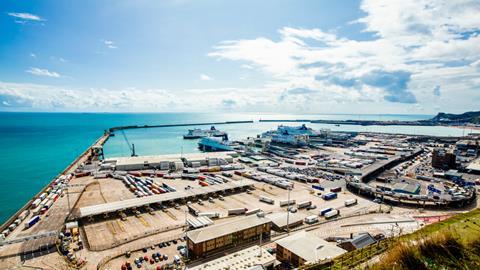New checks on imports and exports of food and agricultural products to and from the EU began this week, with the government maintaining it would take a pragmatic approach and not go “from nought to 100mph on day one”.
Products presenting a ‘medium’ risk to biosecurity now undergo identity and physical checks at ports, which test for pests and diseases.
Additionally, Defra said goods gauged to be ‘high risk’ will now be checked at the border, where before they were checked at their destination.
Cabinet Office minister Baroness Neville-Rolfe said the risk-based checks were essential: “We cannot continue with temporary measures which leave the UK open to threats from diseases and could do considerable damage to our livelihoods, our economy and our farming industry,” she said.
“We have listened to all parts of industry every step of the way and will continue to support them to implement these changes as smoothly as possible.”
Nichola Mallon, Logistics UK head of trade and devolved policy, said the government’s promise to take a light touch meant the business group did not expect any immediate major disruption: “This seems to have been borne out and our members have not reported any significant or persistent problems to us so far, but it is still early days,” she said.
“Despite the new system going live, business critical information remains outstanding.
“Further detail is needed on what the government’s phased approach to checks actually means in practice in terms of the number of inspections that are being requested and carried out, where, and on what commodities.
“Our members also still need to know the exact timeline as to when physical checks will be scaled up along with details of the compliance regime underpinning the new charging system.”
In a House of Lords debate on the issue this week, Liberal Democrat peer Lord Redesdale raised concerns over the hours potentially spent by trucks drivers waiting for produce to be processed: “There was an example given that some truck drivers might have to wait 10 hours.
“Of course, if you are a haulage company, that is a really difficult issue to deal with, considering that that truck driver then might be working 10 to 20 hours in the day,” he said.
“There is a shortage of truck drivers, and haulage companies are working on razor-thin margins. This could have a real implication, not too far in the distance, of a shortage of truck drivers, and therefore a shortage of trucks.”
In response, biosecurity minister Lord Douglas-Miller said: “My clear instruction to all the port health authorities is that we do not want to go from nought to 100 miles an hour on day one.
“We have targets in terms of the quantity of products per risk category that we want to check. We can build up to that; we do not need to go from nothing to everything on day one.”














